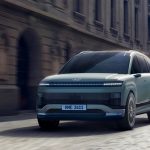Hyundai is upping the ante on China’s main EV maker with plans to dish out $28 million (1 billion baht) on a brand new EV meeting and battery plant in Thailand. BYD is main the “Detroit of Asia’s” surging EV market, however Hyundai appears to seize its share.
Hyundai to fend off BYD with EV plant in Thailand
With EV gross sales surging in Thailand, Hyundai needs in on the motion. On Wednesday, the Thailand Board of Funding (BOI) accredited a $28 million (1 billion baht) funding from Hyundai’s subsidiary.
“Thailand’s sturdy current provide chain will enable Hyundai to supply not lower than a 3rd of the uncooked supplies and components it wants from inside Thailand, thus supporting the native trade,” Mr. Narit Therdsteerasukdi, Secretary Common of the BOI, defined.
The funding will likely be used to ascertain a brand new EV meeting and battery plant within the nation, beginning in 2026.
Hyundai will work with Thonburi Automotive Meeting Plant Co. as a strategic enterprise accomplice to realize a foothold within the nation.
Hyundai’s EV plant comes as Thailand’s auto market shortly shifts to electrical automobiles. Though Japanese automakers, like Toyota and Nissan, have traditionally dominated the Thai auto market, Chinese language EV markers are quickly stealing market share.
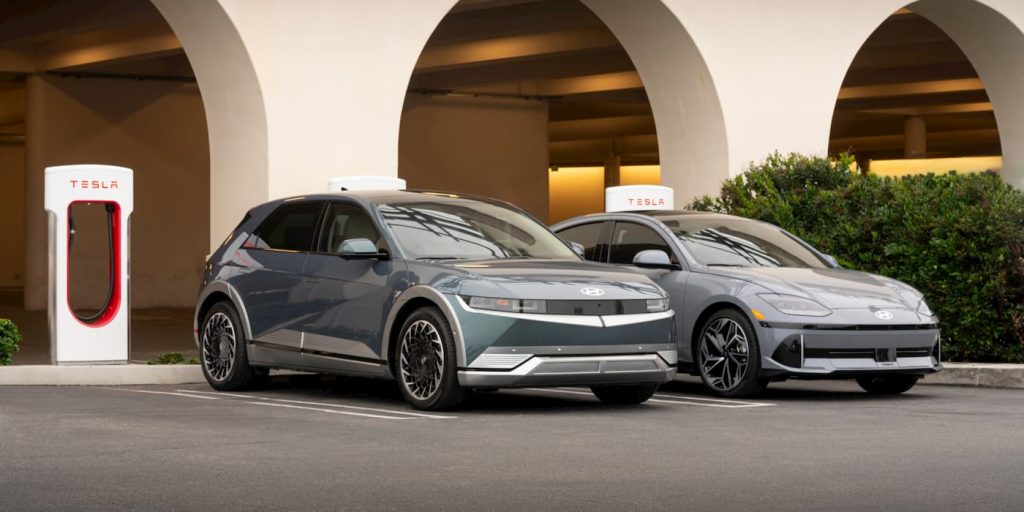
BYD leads Thailand’s booming EV market
With almost 30,000 electrical vehicles offered in Thailand final yr, BYD was the top-selling EV model within the nation. And that’s after coming into the market simply two years in the past.
BYD has maintained its momentum in 2024 with a 46% share of Thailand’s EV gross sales within the first quarter. Based on world market analysis agency Counterpoint, BYD is already the nation’s third-largest passenger automotive model (EV or fuel).
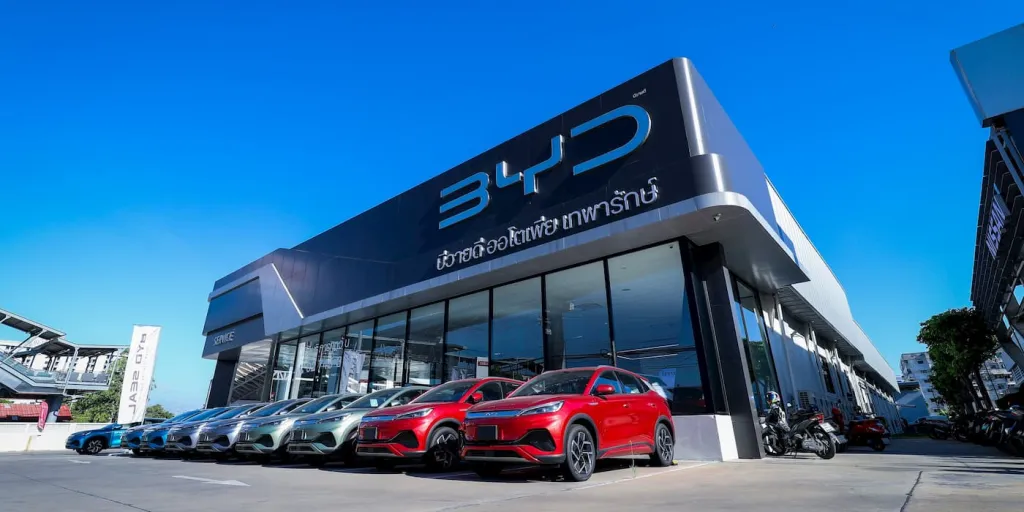
After breaking floor final March, BYD formally opened its first EV plant in Thailand on July 4, 2024. As soon as operational, the power will crank out 150,000 automobiles yearly.
Generally known as the “Detroit of Asia,” Thailand’s EV gross sales have slowed some as a consequence of a weakening financial system, however they’re nonetheless up 50% in comparison with final yr.
Thailand set an bold objective in 2021: By the tip of the last decade, 30% of automobiles made within the nation will likely be electrical.
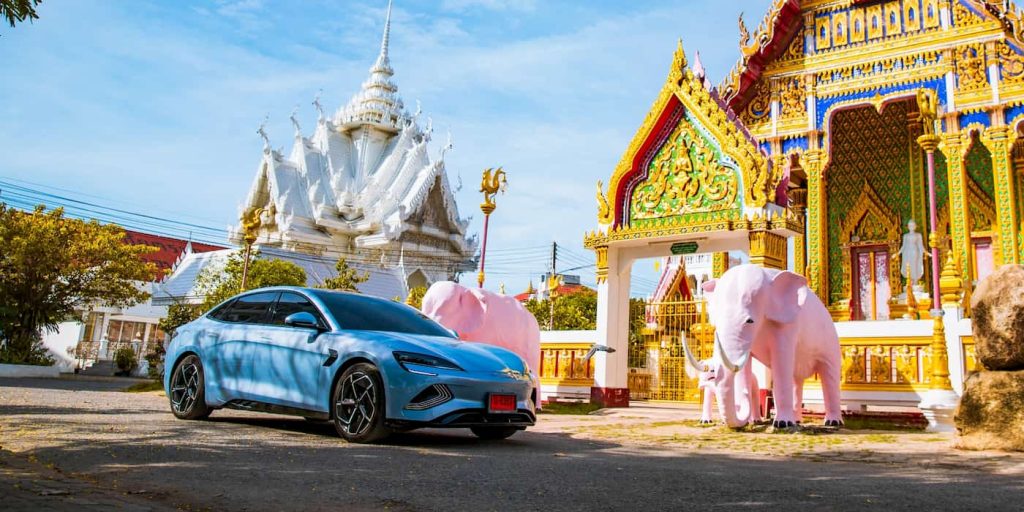
Beneath its 30@30 plan, Thailand goals to safe its place as an EV hub for the long run. Thailand is already the most important auto manufacturing nation in Southeast Asia and ranks within the high 10 globally.
The BOI has accredited over $2.2 billion (80 billion baht) in EV provide chain investments. In the meantime, 18 producers from China, Japan, and Europe are already constructing EVs in Thailand or plan to within the subsequent two years.
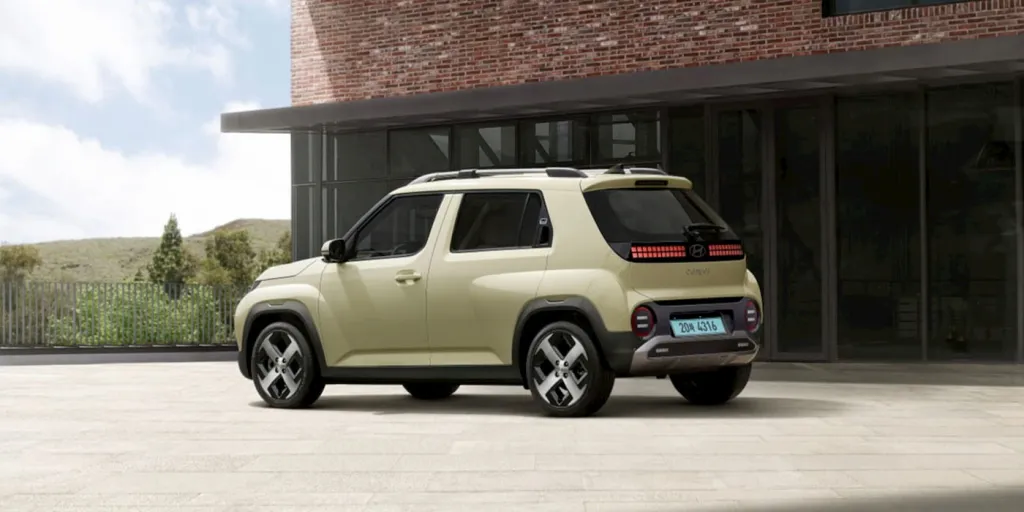
Hyundai and BYD will assist lead Thailand’s transition to electrical automobiles, leaving fuel vehicles behind.
Though BYD is understood for low-cost EVs, Hyundai opened orders for its new Casper Electrical, beginning at simply $23,000 (31.5 million received) in Korea. With rebates, Hyundai stated the Casper EV will be purchased for as little as $14,500 (20 million received).
Electrek’s Take
After touring throughout Thailand on my honeymoon in Might, I can say Chinese language EVs are formally taking up.
BYD Atto 3s and Dolphin fashions are taking up the streets of Thailand. Though the vast majority of the vehicles on the highway (not two-wheelers) have been nonetheless Japanese, the emergence of Chinese language EVs can’t be missed.
Thailand is full of indicators selling Chinese language EVs from BYD, MG, and even XPeng. You see ads within the airport, on highways, and in different high-traffic areas.
With the competitors intensifying after aggressive worth cuts in China, EV makers are increasing abroad, and Thailand is a scorching spot. Japanese imports like Toyota and Nissan have traditionally dominated Thailand’s auto market. Nonetheless, the arrival of Chinese language EVs is inflicting a drastic shake-up.
Japanese automakers have been a few of the slowest to transition to EVs and are paying for it in China and Southeast Asia, two of their most crucial markets.
Hyundai and BYD are benefiting from Thailand’s aggressive EV objectives with plans to arrange store within the area. I’d anticipate to see EV adoption accelerating over the subsequent few years in Thailand as gas-powered vehicles are phased out.
![Check out Hyundai’s new $23K Casper EV spotted out in the wild [Video]](https://looki.net/wp-content/uploads/2024/07/Hyundais-Casper-EV-spotted-860x450.jpeg)



